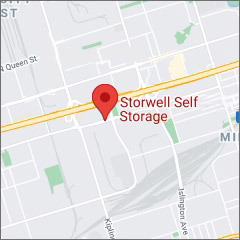A place for everything, and everything in its place.
A Totally-Not-Boring Blog About Storage
Winterizing you RV for Long-Term Seasonal Storage
Table of Contents
- How do I find RV storage near me?
- Do a full inspection and a deep cleaning
- Drain the water system
- Run faucets to remove excess air from pipes
- Keep rodents out of your RV
- Winterize the interior of your RV
- Protect your tires
- Save your batteries
- Add a fuel stabilizer
- Choose a safe location to store your RV for the winter
- Do periodic checks
- FAQs
- Should I store my RV with a full gas tank?
- Do I need to disconnect my RV's battery while in Storage?
- Where should I store my RV during the winter?
- How much does it cost to store an RV at a self-storage facility?
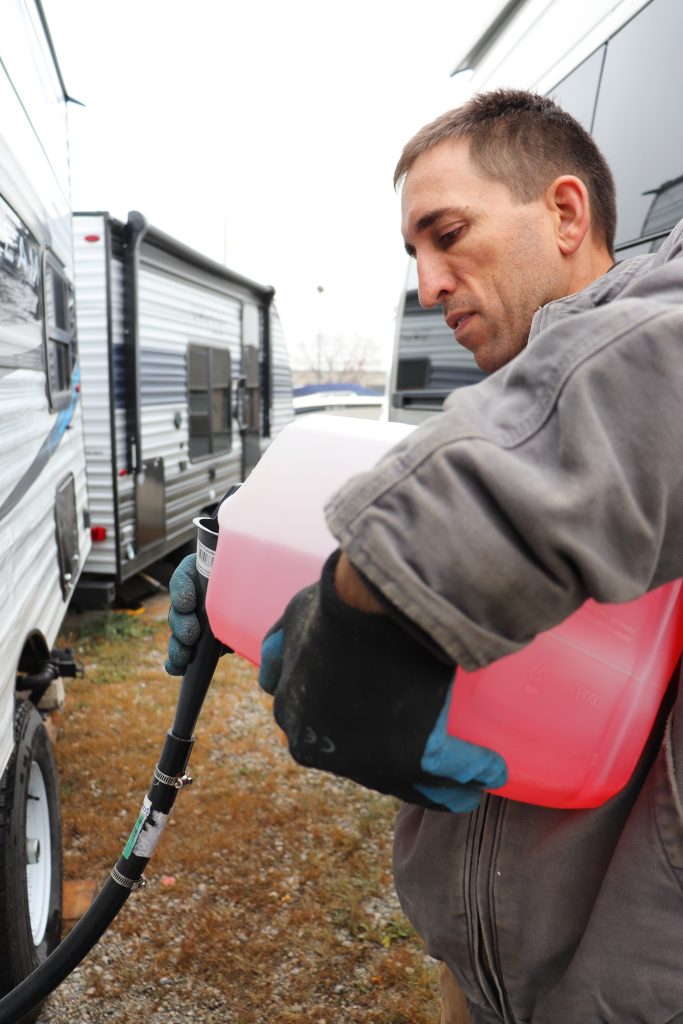
Many Recreation Vehicle (RV) owners want to learn how to winterize a camper without spending a ton of time and money in the process. Even if you’re on a strict budget, you’ll want to winterize the RV correctly before putting it into any long-term storage during the winter season. If you’re an RV owner and you live and travel in Canada, chances are climate conditions don’t permit you to enjoy your RV all year round. When you’re facing cold rainy seasons or deep winter weather every year, getting your RV properly winterized and ready for seasonal storage is a necessity. If you live in the GTA, renting a self-storage unit in Scarborough, Mississauga or Etobicoke at one of our Storwell Self Storage facilities is the best way to ensure that your RV stays in great condition. Storwell also has outdoor parking spots that are large enough to accommodate any recreational vehicle.
The main risk of leaving an RV to sit all winter long is the probability of freezing. Plumbing systems are especially susceptible to freezing, and the resulting repair bills could cost you a lot of money. Frozen and damaged water lines are in fact, the most common problem related to not winterizing your RV or not properly winterizing your RV; but there is more to winterizing your RV than just protecting the water system from freezing. You need to prepare your RV’s interior, exterior, chassis and plumbing from the harsh winter months.

How do I find RV storage near me?
Outdoor and indoor RV storage solutions are available at every Storwell Self Storage location. Storwell has premium self-storage facilities across the GTA in Scarborough near Markham Road and Highway 401, in Etobicoke near Kipling Avenue and the Gardiner Expressway, and in Mississauga near Winston Churchill Boulevard and the Queen Elizabeth Way.
Do a full inspection and a deep cleaning
Before starting the winterization process on your RV, motor home, or camper, make sure to check the owner’s manual. There you will find information on any built-in winterizing features. It will also inform you how to care for the appliances in your RV, and give you specific instructions for getting your motor home ready for the off-season.
This inspection process should be as thorough as possible; here are some things to look out for:
- Start with an inspection of the roof and sidewall seams. Check to see if there are any cracks or signs of leaking. Make note of any areas that require repairs.
- Then move on to the fiberglass exterior. Check that there are no soft spots and that it isn’t peeling away anywhere. Bumpy spots are a sign of delamination and will need to be resealed.
- From there, check the plastic floor wrapping that is normally underneath most RVs. This wrapping keeps water out so by checking it you are ensuring that your floor is not rotting. A dry insulation is an indication that your floor is leak-free and water-free.
- Lastly, check the rubber roof. Most rubber roofs last 10 to 15 years. If your rubber roof is beginning to age, you need a new paint on coating.
After the initial inspection, you should give you RV a deep clean. Clear the fridge and cupboards of all food and perishable items. Vacuum, take out the trash, and remove all personal belongings that don’t need to be kept in the RV. Wash and wax your motor home before temperatures drop too low. Properly cleaning your RV before putting it in storage is a great way to prevent road salt from freezing and creating rust or hurting your paint job.
Drain the water system
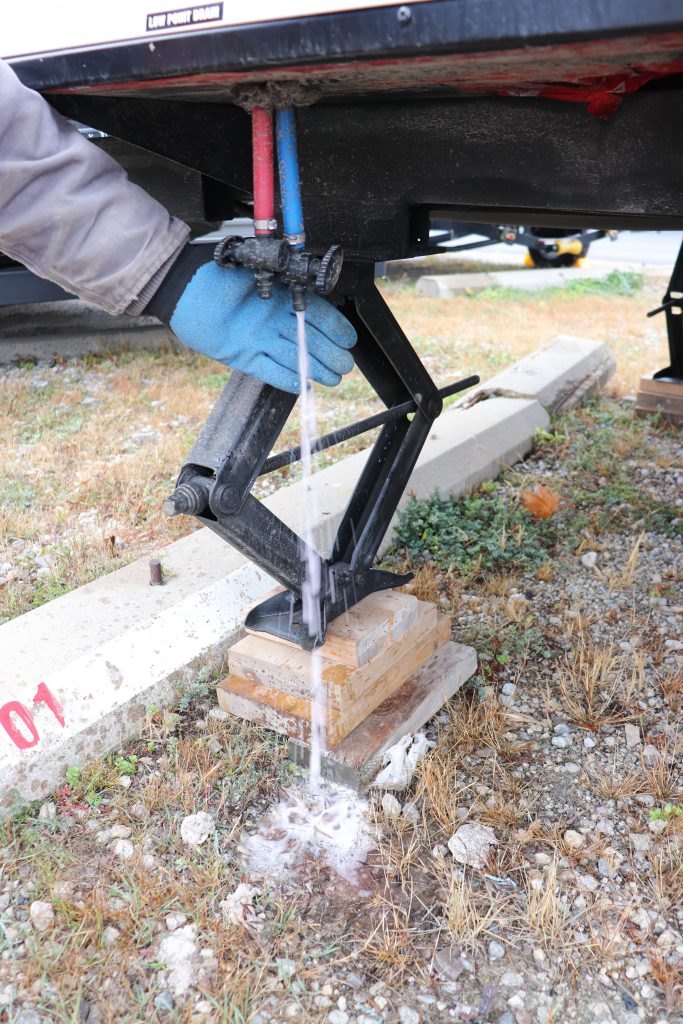
This might be the most critical step for winterizing your RV. Any water left in the plumbing system can freeze and break fittings and lines. Water damage can be extremely costly, so do not neglect this step in the winterization process.
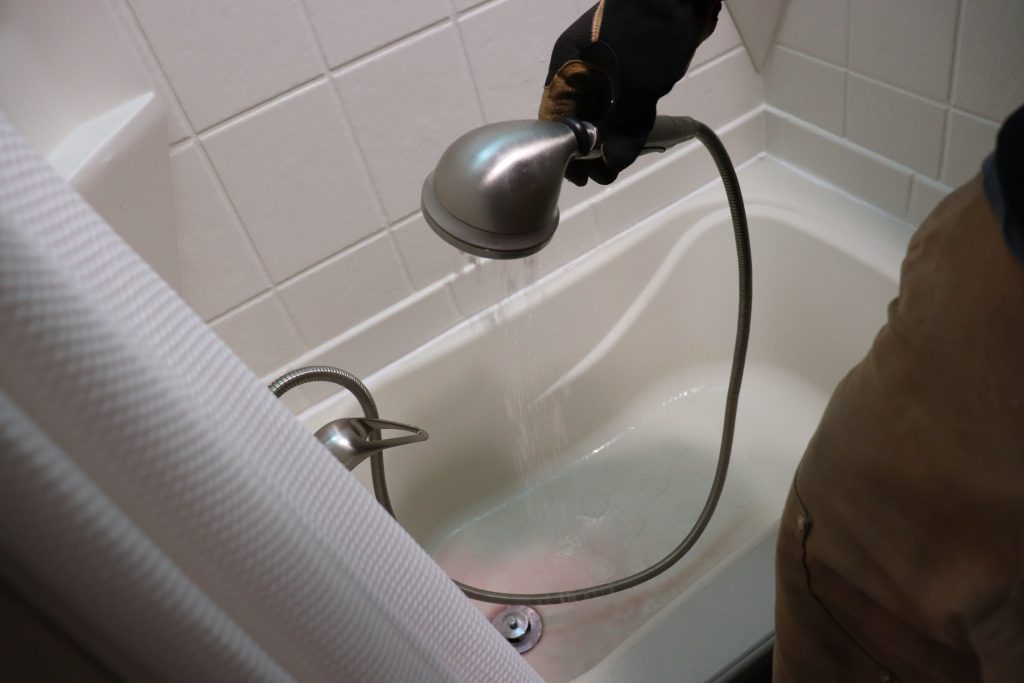
Depending on the complexity of your RV’s plumbing system, winterizing it may be a do-it-yourself process. You have to drain the fresh water and waste tanks, drain all water out of the pipes and pump nontoxic RV antifreeze through the entire water system. Your owner’s manual should also include a checklist for draining the water system. However, if you don’t feel qualified to do it yourself, a trained professional technician at a service center can provide this service for a fee.
If you decide to drain the water system yourself, you will need to head to somewhere where you can safely drain your plumbing system. Before you start clearing out your pipes, remember to disconnect all outer sources of water and turn off system power. Be sure to switch off any gas or propane before getting started as well.
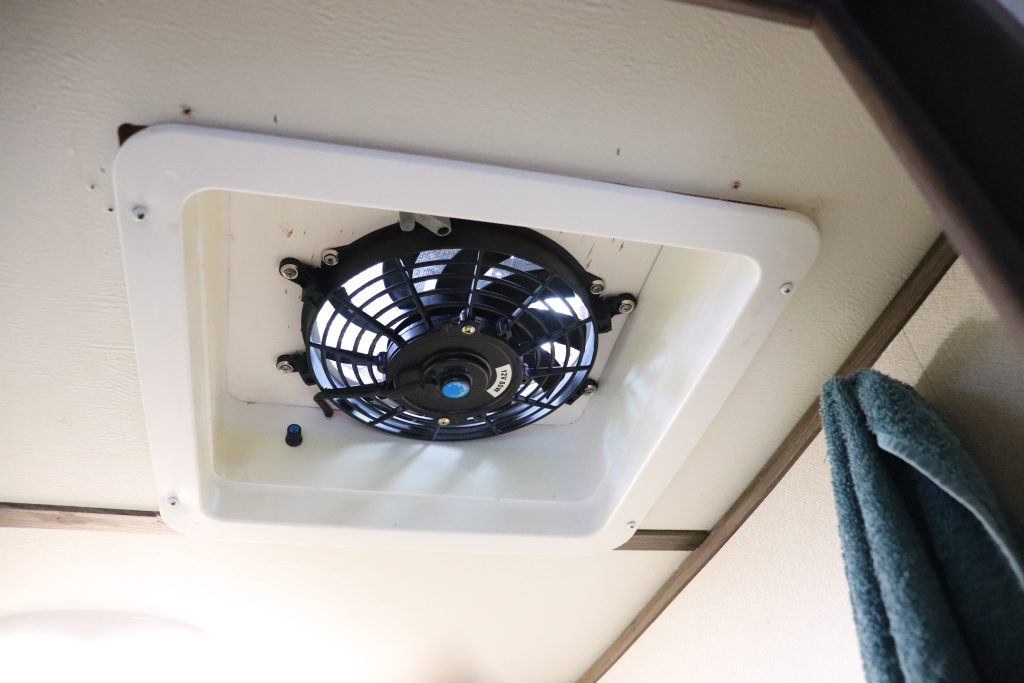
Run faucets to remove excess air from pipes
Once all tanks are drained, you will need to create a way for lingering moisture and air to escape. Open all RV drain valves, turn on faucets, and flush the toilet a few times to expel any extra liquids. Turning these faucets on will allow air to travel all the way through the system. Make sure excess air is eliminated from the pipes so they don’t freeze. You can also try blowing out water lines with an air compressor to force any remaining moisture out. Remember to turn faucets off and return any caps after you’re done with this RV air compressor winterization.
Keep rodents out of your RV
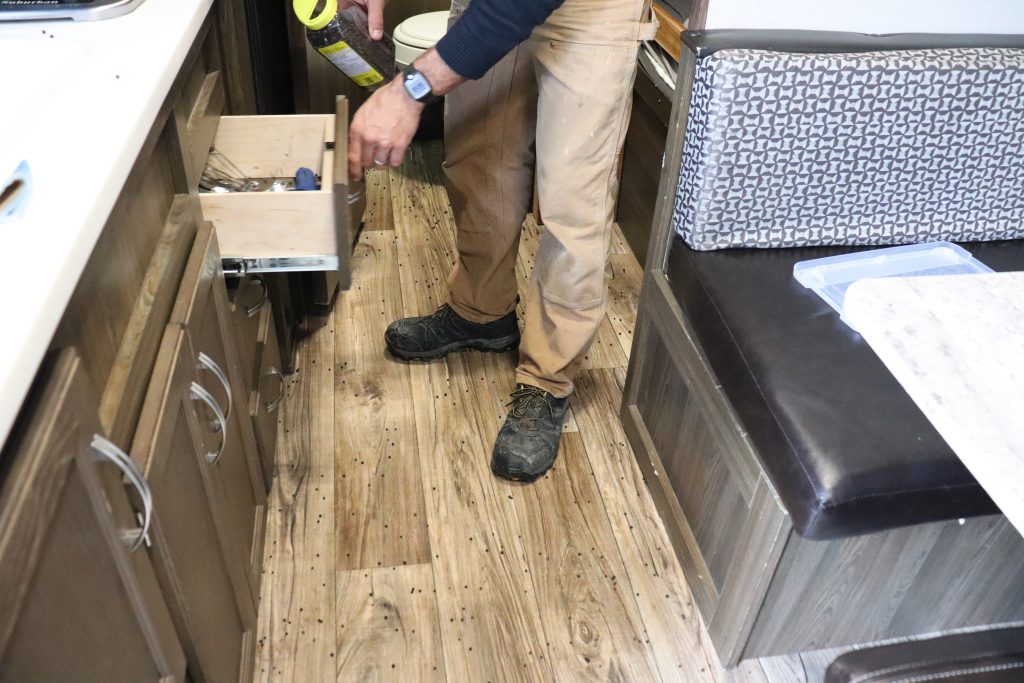
Winterization is not only for draining fluids, but it is also about sealing your camping vehicle and keeping rodents out. A parked RV provides the perfect spot for rodents and pests to hibernate and escape the harsh temperatures in the wintertime. In the process of making your RV their winter home, they can cause a lot of damage to the interior of the vehicle by burrowing, tearing, nibbling on various items like cushions, curtains, and cabinets. To discourage the rodents, be sure to remove all food from the RV, then thoroughly clean the refrigerator, freezer, cupboards, countertops, and floors. Consider placing mouse and ant traps in and around your RV. Pay special attention to where rodents can get in. To help deter rodents and pests, fill any holes with steel wool, aluminum foil or a mesh screen.
Winterize the interior of your RV
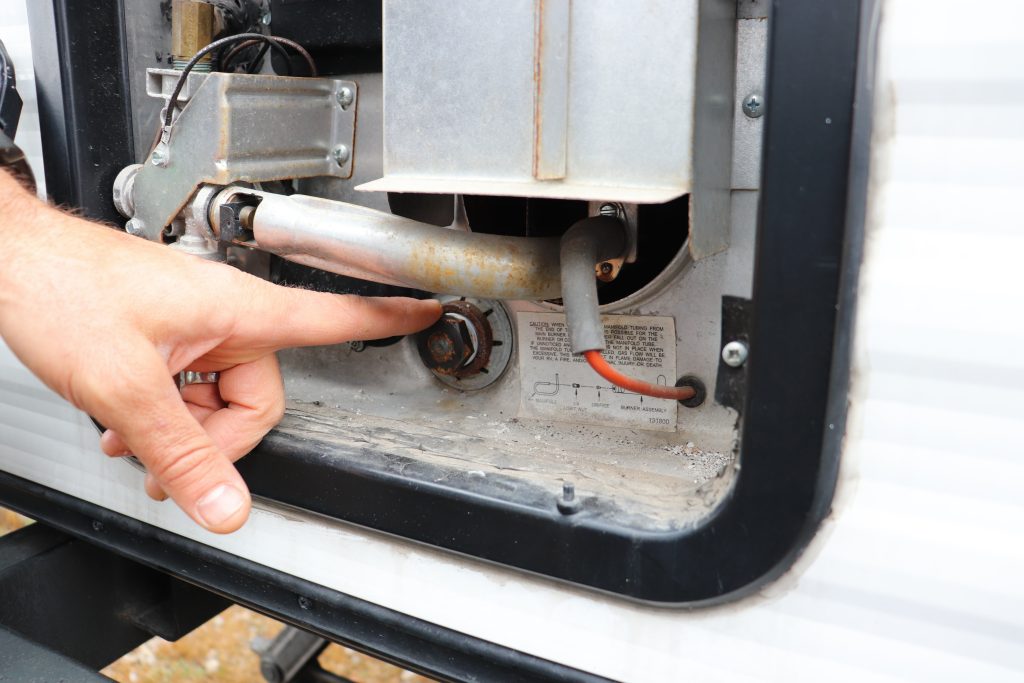
There are some things you’ll want to remove from your RV before storage and some things you’ll want to clean. This will help prevent rodents and other pests from making your camper their home while also preventing unwanted odors, moisture build-up, and damage. The cleaner your RV is when put into storage, the better the start of the next season will be.
- Unplug any electronics or small appliances. Remove any batteries from remotes, smoke detectors and other devices and store elsewhere.
- Cover stove burners to help prevent spiders from getting inside.
- Remove all food and drink from the kitchen and throughout the camper.
- Remove all linens and have them washed and stored offsite.
- Remove all valuables. The last thing you want is for your RV to get robbed and to lose out on some expensive items.
- Thoroughly clean all appliances, cook tops, countertops, and inside kitchen cabinets.
- Remove external propane tanks and store them elsewhere. Make sure to remove any propane tanks from inside the RV.
Protect your tires
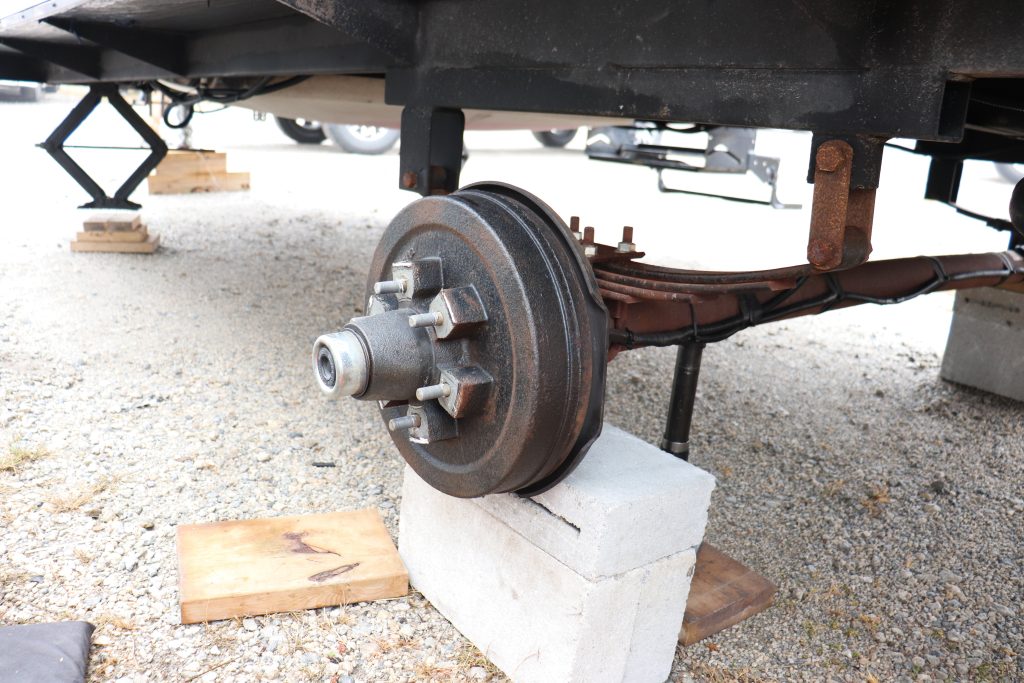
Make sure to inflate all of the tires to the pressure indicated on the sidewalls before storage. Tires may lose pressure during storage; so be sure to check the tires and inflate them before taking your RV out on the road again. Recreational vehicles weigh a lot. Leaving them sitting on concrete all winter can create flat spots in tires and could potentially do permanent damage to your rims. Put wood or a material that doesn’t freeze easily below the entire length and width of your tires. Using wheel chocks is another easy way to prevent damage to your tires and rims during RV winter storage.
Save your batteries
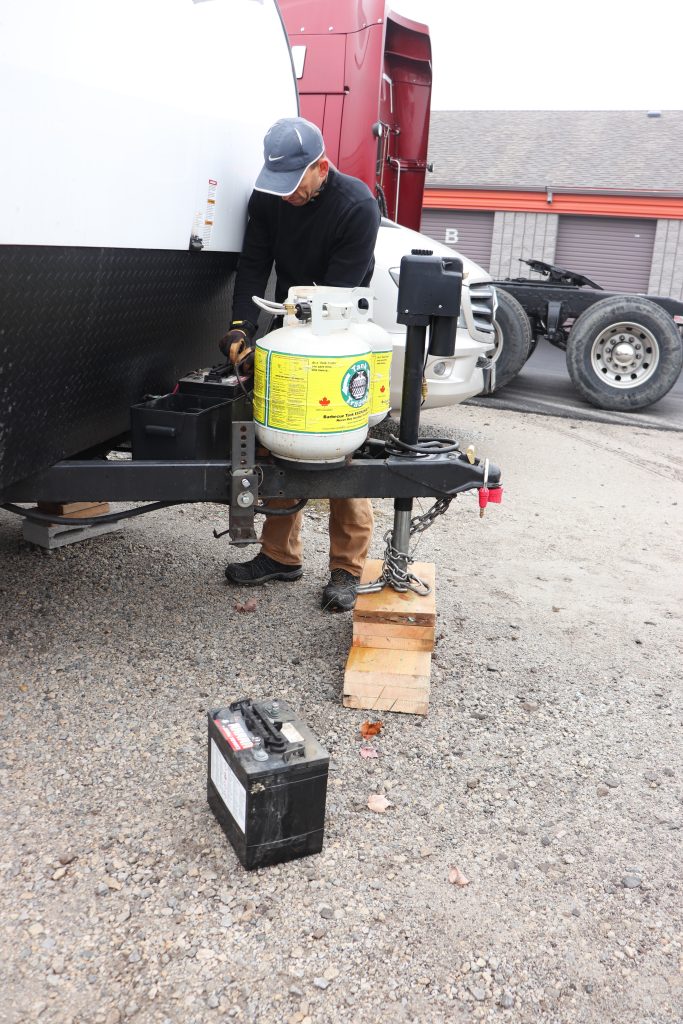
Disconnect the batteries and store them in a cool and dry place. Batteries will lose some of their charge in storage; the cool temperature slows that loss. Check the charge every four to six weeks with a voltmeter, and charge the batteries as necessary to keep them fully charged. This is important because a partially charged battery may freeze faster than a fully charged one. Freezing can damage or destroy the batteries.
Add a fuel stabilizer
Before moving an RV into long-term storage, fill the gas tank to almost full. Because gas begins to break down over time if you’re not driving, it can be hazardous to your engine when it’s time to start it again. Add a fuel stabilizer to slow this process and ensure your engine stays safe during the colder months. Gas can go bad over time, resulting in sticky resin deposits. Those gummy deposits are caused by oxidation and they can damage an engine. Fuel stabilizer prevents the deposits from forming.
First add the stabilizer according to the product’s package instructions and then fill the rest of the tank with gas. Start both the engine and generator, and let them run for a few minutes, following the directions on the bottle to allow the stabilizer to work its way through the entire fuel system. You should also change the oil and oil filter in the engine and in the generator before storage.
Choose a safe location to store your RV for the winter
Ideally, you’ll be able to park your RV for the winter in a shelter or under a roof, but for some RV owners that just isn’t possible. If you’re planning to store your RV in your driveway or yard, try to find a location that’s sheltered from the wind, and park the RV out of the way of any trees that may come down in a wind or ice storm. If you’re hoping to park your RV on the street for the winter, be sure to check your city code first. Parking regulations for motor homes vary from city to city, with some restricting street parking altogether.
If your RV will be outside all winter, consider investing in a cover made especially for an RV. The cover will protect against extended exposure to ultraviolet (UV) rays that can damage the paint finish. It will also protect your vehicle from wind damage, tree sap, and bird droppings. Don’t use a plastic tarp because plastic will trap moisture between the RV and the tarp and is also likely to flap around in the wind and may damage exterior surfaces.
The most reliable place to store your RV for the winter is a self-storage facility. Renting out a self-storage unit allows you to store your motor home indoors during the harsh winter months. Most self-storage facilities also offer outdoor RV parking if you are looking for a more affordable storage solution. Self-storage facilities like Storwell offer 24/7 access so that you can come check on your vehicle at any time. With 24-hour video camera surveillance and gate code access, you can rest assured that your RV will be safe and secure.
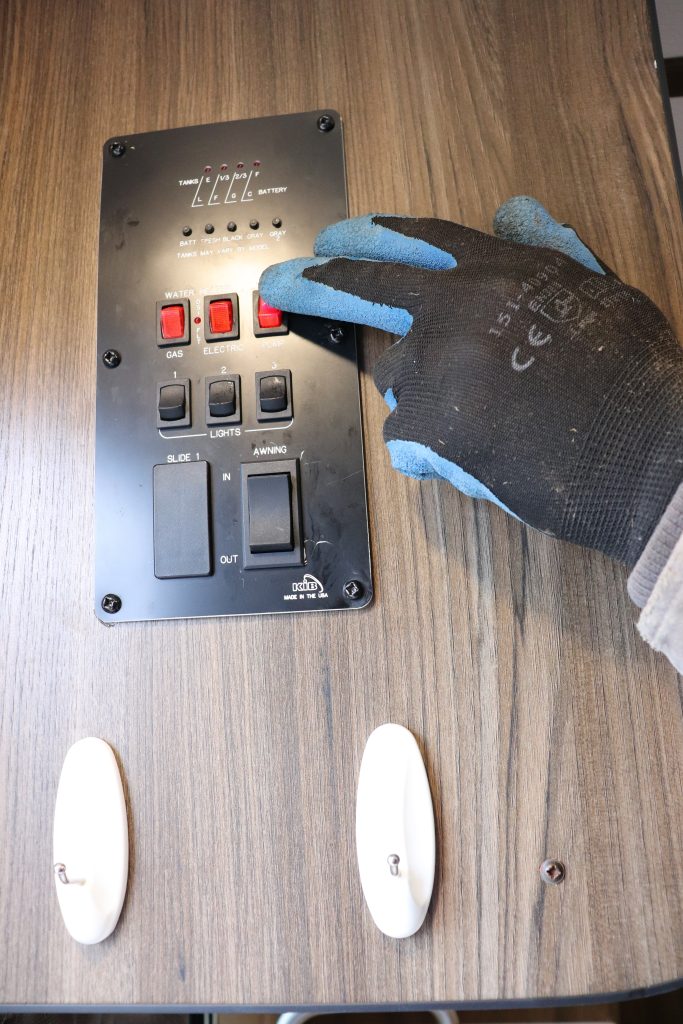
Do periodic checks
After you’ve winterized your RV and tucked it away for the winter, don’t just leave it sitting there. Even if you’ve done everything to properly winterize it, there’s a chance something could go wrong. You don’t want to open up your camper in the spring to any unpleasant surprises. Plan to check up on everything at least once every couple months.
FAQs
Should I store my RV with a full gas tank?
When you are preparing your RV for long-term storage you should fill the gas tank to almost full. Because gas begins to break down over time if you’re not driving, it can be hazardous to your engine when it’s time to start it again. To prevent damage to your fuel tank, add a fuel stabilizer to ensure your vehicle stays in good condition during the colder months.
Do I need to disconnect my RV’s battery while in Storage?
You should disconnect your battery when you are storing your RV for a prolonged period of time. Disconnect the batteries and store them in a cool and dry place. Batteries will lose some of their charge in storage; the cool temperature slows that loss. Check the charge every four to six weeks with a voltmeter, and charge the batteries as necessary to keep them fully charged.
Where should I store my RV during the winter?
While you can store your RV at your home, you may not have enough space in your driveway and you might run into issues with your local Homeowners associations if you try parking your RV out on the street. The most reliable place to store your RV for the winter is a self-storage facility. Renting out a self-storage unit allows you to store your motor home indoors during the harsh winter months.
How much does it cost to store an RV at a self-storage facility?
There are a lot of factors that determine the cost of a self-storage such as location, seasonality, and size. Storwell Self Storage provides some of the most affordable self-storage units. For unit prices and ongoing discounts and promotions call in to one of our knowledgeable and experienced self-storage experts.

